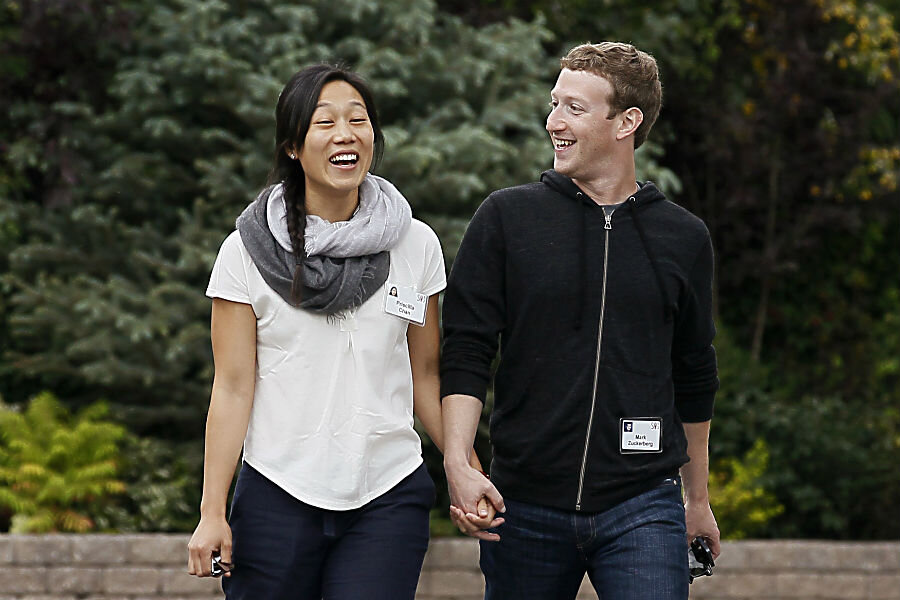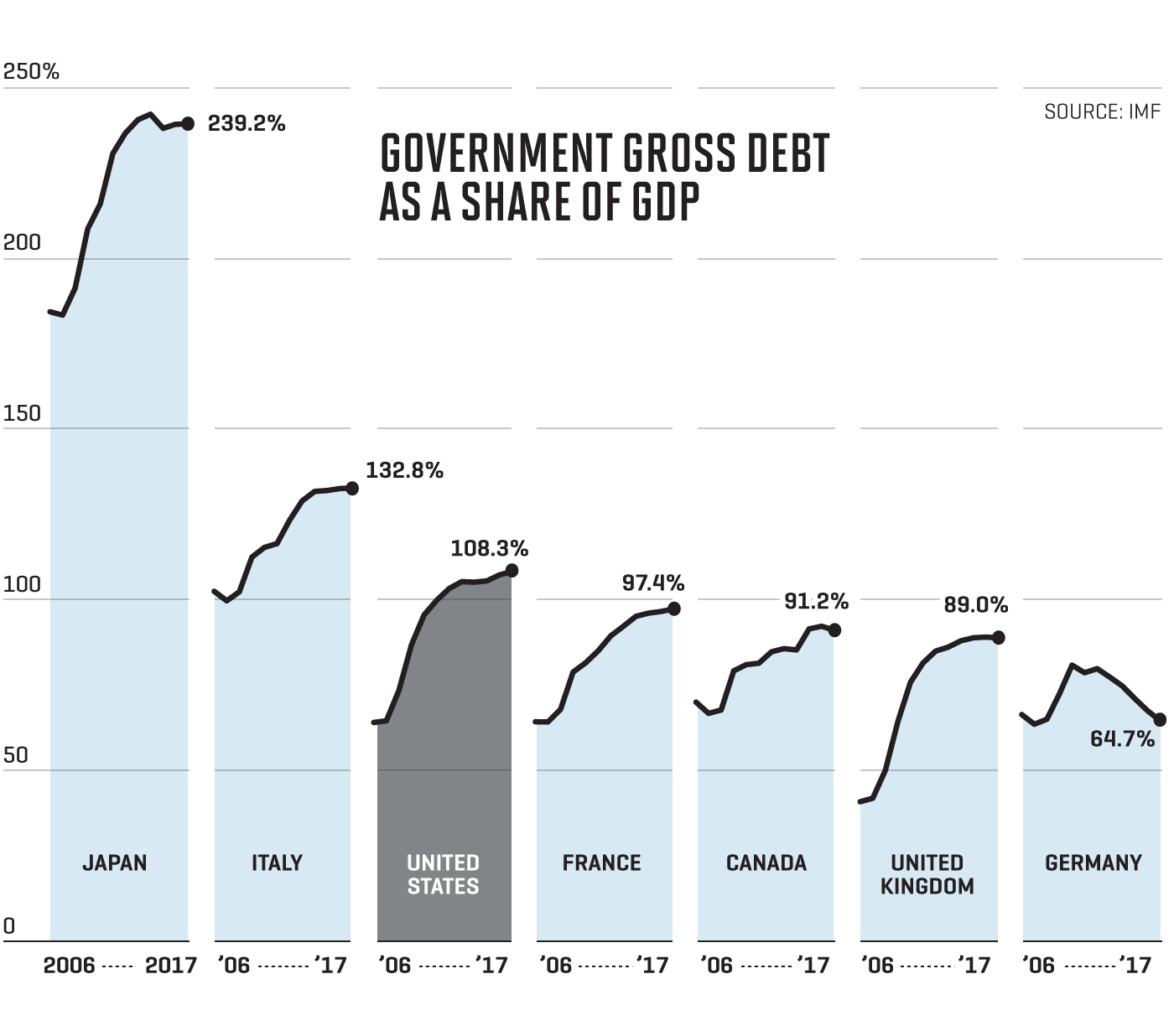Zuckerberg's New Chapter: Navigating The Trump Presidency

Table of Contents
The Rise of Misinformation and Political Polarization
The Trump presidency coincided with a surge in misinformation and highly divisive political content on Facebook. Sophisticated disinformation campaigns exploited the platform's algorithms, reaching vast audiences and significantly impacting public discourse. Zuckerberg's leadership during this period was constantly under the lens of intense criticism and public scrutiny, raising critical questions about Facebook's role in shaping public opinion.
- Examples of significant misinformation campaigns: The spread of fake news stories during the 2016 election, including claims about Hillary Clinton's health and Russian interference, exemplifies the scale of the problem. Similarly, the 2020 election saw a proliferation of false claims about voter fraud and election rigging.
- The role of algorithms in amplifying this content: Facebook's algorithms, designed to maximize engagement, inadvertently amplified the reach of divisive and misleading content. The algorithm's focus on virality often prioritized sensationalized posts, regardless of their veracity.
- The impact on the 2016 and 2020 US elections: The spread of misinformation on Facebook is widely believed to have influenced voter behavior and contributed to the highly polarized political climate in the United States. Studies continue to explore the extent of this impact.
The criticisms leveled against Facebook were substantial. Accusations ranged from enabling foreign interference in elections to fostering the spread of harmful conspiracy theories and hate speech, directly impacting public trust and demanding significant changes in Facebook's operations. Statistics from this era reveal a dramatic increase in the number of false and misleading news stories shared on the platform, highlighting the urgent need for improved content moderation.
Facebook's Response to Criticism and Regulatory Scrutiny
Faced with mounting pressure, Facebook implemented various strategies to combat misinformation and protect user data. However, these efforts were often met with further criticism, highlighting the complexities of regulating online content.
- Implementation of fact-checking initiatives and policies: Facebook partnered with independent fact-checking organizations to identify and label false information. However, the effectiveness of these initiatives remained a subject of debate.
- Efforts to improve content moderation practices: The platform invested heavily in content moderators and improved its algorithms to reduce the visibility of harmful content. Yet, these changes proved insufficient to entirely curb the spread of misinformation.
- Engagement with government regulators and investigations: Facebook faced numerous investigations and regulatory actions from governments around the world, including the US Congress. These inquiries scrutinized the platform's data privacy practices and its role in spreading misinformation.
The effectiveness of Facebook's responses remains controversial. While some progress was made, the platform continued to struggle with effectively identifying and removing misinformation, particularly in the face of sophisticated disinformation campaigns. The ongoing debate about platform accountability and responsibility reflects the difficulties of balancing free speech principles with the need to combat harmful content.
Zuckerberg's Public Image and Testimony Before Congress
Zuckerberg's public image took a significant hit during this period. His appearances before Congress, where he faced intense questioning about Facebook's practices, significantly impacted his credibility and public trust.
- Analysis of his congressional testimony appearances: These appearances revealed the intense pressure Zuckerberg faced, highlighting the difficulties of effectively communicating complex technical and policy issues to a skeptical public.
- Impact on his credibility and public trust: The controversies surrounding Facebook eroded public trust in both the platform and its CEO. Zuckerberg's image shifted from a youthful tech visionary to a figure facing intense scrutiny and accountability.
- Shift in communication strategies: In response to criticism, Zuckerberg and Facebook adapted their communication strategies, attempting to project a more responsible and proactive stance on addressing misinformation.
The intense scrutiny Zuckerberg faced forced a significant evolution in his public persona. He moved away from a more detached and technical approach, adopting a more conciliatory tone and emphasizing the platform's efforts to improve its practices. His personal and professional life came under increased media attention, further shaping his public image.
The Long-Term Impact on Facebook's Policies and Practices
The Trump presidency left an enduring legacy on Facebook's policies and practices, forcing significant changes to content moderation and algorithm design.
- Changes to algorithms and content moderation systems: Facebook invested heavily in improving its algorithms and content moderation systems to better identify and remove harmful content. This involved employing more content moderators, enhancing AI-powered detection tools, and refining its policies on misinformation and hate speech.
- Increased investment in security and fact-checking: The platform increased its investment in security and fact-checking initiatives, aiming to proactively combat the spread of misinformation. However, this remains an ongoing challenge.
- The evolving relationship between Facebook and government regulation: The increased regulatory scrutiny during this period has significantly impacted the relationship between Facebook and governments worldwide, leading to ongoing debates about platform accountability and the regulation of social media.
The long-term implications for freedom of speech versus the spread of misinformation remain a significant ongoing debate. Facebook continues to navigate the complex challenge of balancing these competing interests, striving to maintain a platform that promotes free expression while effectively mitigating the spread of harmful and misleading content.
Reflecting on Zuckerberg's New Chapter
Zuckerberg's leadership during the Trump presidency presented unprecedented challenges for Facebook, forcing the platform to confront the spread of misinformation, intense regulatory scrutiny, and significant damage to its public image. This period led to significant changes in Facebook's policies, including increased investment in content moderation, fact-checking, and algorithm improvements. However, the ongoing debates surrounding social media regulation and the battle against misinformation highlight the lasting impact of this "Zuckerberg under Trump" era. Understanding Zuckerberg's navigation of this challenging period is crucial to comprehending the ongoing debates surrounding the future of social media. Continue exploring the complexities of Zuckerberg's new chapter and the challenges of navigating the digital landscape.

Featured Posts
-
 Canada Election Conservatives Commitment To Fiscal Responsibility
Apr 24, 2025
Canada Election Conservatives Commitment To Fiscal Responsibility
Apr 24, 2025 -
 Los Angeles Wildfires And The Gambling Industry A Troubling Connection
Apr 24, 2025
Los Angeles Wildfires And The Gambling Industry A Troubling Connection
Apr 24, 2025 -
 Fiscal Policy Under Conservative Leadership Tax Cuts And Deficit Control In Canada
Apr 24, 2025
Fiscal Policy Under Conservative Leadership Tax Cuts And Deficit Control In Canada
Apr 24, 2025 -
 Instagram Targets Tik Tok Creators With New Video Editing App
Apr 24, 2025
Instagram Targets Tik Tok Creators With New Video Editing App
Apr 24, 2025 -
 John Travoltas Shocking Rotten Tomatoes Record A Deep Dive
Apr 24, 2025
John Travoltas Shocking Rotten Tomatoes Record A Deep Dive
Apr 24, 2025
